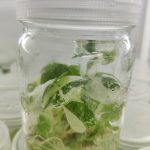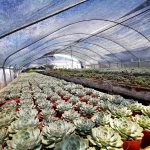Growing orchids from seeds is a delicate procedure that needs a highly sterile environment (hence, most seed growers work from a laboratory). Even so, in this guide, you’ll learn how to grow orchids from seeds at home.
A simple visual indication, such as gravel or scarlet rocks, indicates that locations, such as a container garden forest, a reflecting pool, and a perennial wildflower border, are linked by more than simply geographical closeness.
There are two ways to germinate an orchid seed. In nature, orchid seeds drop down to the soil. However, unlike other plant seeds, orchid seeds don’t store nutrients and can’t survive and grow without an external source of nutrients. To compensate for their lack of nutrient stores, orchid seeds form symbiotic relationships with fungi.
Mycorrhizal fungi in the soil have an enhanced ability to absorb nutrients. The fungi attach to orchid seeds and promote germination. In return, the growing orchid uses photosynthesis to make food from the nutrients.
What happens in nature is that the seed lands on the soil and is attacked by fungi. In some cases, the fungi will decompose the seed until the seed dies. In other cases, the seed will feed off the fungi’s nutrients until the fungi die. Then, the seed dies shortly afterward for a lack of further nutrients. In other cases, the seed denies the fungi entrance, so the seed dies.
However, in a small fraction of cases, the fungus attacks, and at the same time, the seed degrades and consumes the fungi. The symbiotic relationship flourishes and an orchid plant emerges.
Asymbiotic Germination (Flasking)
Flasking involves germinating orchid seeds in vitro using agar. The agar is a jelly-like mixture of nutrients and growth hormones. Flasking is the more popular method of growing orchids from seeds at home since it is cheaper, easier, quicker, and more reliable.
Gather the Things You Need to Grow Your Orchids
There are very specific things you need to grow orchids from seed. These include:
- Unripe orchid seed pods
- Distilled water (local grocery store)
- Cooking pot
- Rubber gloves
- 80% alcohol
- Bleach for sterilization
- A designated room
- Glove box (sterile environment)
- Scalpel




